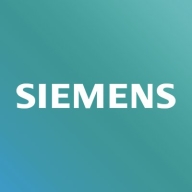

Polarion ALM and Microsoft Azure DevOps are competing products in the application lifecycle management category. Microsoft Azure DevOps has the upper hand with a broader range of features and integration capabilities, while Polarion ALM stands out in pricing and support with more flexible licensing options.
Features: Polarion ALM supports traceability, compliance management, and effective control of product variants and changes, particularly suitable for industries with strict regulatory needs. Microsoft Azure DevOps offers powerful CI/CD pipelines, extensive third-party integrations, and agile project management tools, making it more versatile for dynamic project environments.
Room for Improvement: Polarion ALM users face challenges with ease of use and require better integration opportunities; more out-of-the-box solutions would benefit its usability. Improvements in agile planning and management features are also needed. Microsoft Azure DevOps could enhance community support and provide more direct customer service options, while greater effort in simplifying complex integrations and enhancing real-time collaboration tools would help.
Ease of Deployment and Customer Service: Polarion ALM's on-premise deployment model benefits companies with stringent data protection needs. Its customer service is often seen as more personalized. Microsoft Azure DevOps offers a cloud-native approach, which facilitates easier global collaboration and scaling, but primarily relies on community support and extensive documentation, offering resource availability.
Pricing and ROI: Polarion ALM generally involves a higher upfront cost but provides a compelling ROI, especially for industries focused on compliance management. In contrast, Microsoft Azure DevOps presents competitive pricing plans that are appealing to startups and those seeking cost-effective scalability, with broad appeal through flexible cost structures.
| Product | Market Share (%) |
|---|---|
| Microsoft Azure DevOps | 10.3% |
| Polarion ALM | 5.9% |
| Other | 83.8% |


| Company Size | Count |
|---|---|
| Small Business | 42 |
| Midsize Enterprise | 28 |
| Large Enterprise | 69 |
| Company Size | Count |
|---|---|
| Small Business | 10 |
| Midsize Enterprise | 3 |
| Large Enterprise | 12 |
Microsoft Azure DevOps is a cloud service that enables developers to collaborate on code development projects and create and deploy applications quicker than ever before. The service helps unite developers, project managers, and software development experts through a collaborative experience while using the application. For the users' convenience, Azure DevOps offers the user cloud services through Azure DevOps Services or an on-premises service using Azure DevOps Server. In addition, it supports integration with additional services and adding extensions, including the ability for the user to create their own custom extensions.
Azure DevOps provides a variety of unified features that can be accessed through their web browser or IDE client, such as:
Benefits of Microsoft Azure DevOps
Microsoft Azure DevOps offers many benefits, including:
Reviews from Real Users
Microsoft Azure DevOps stands out among its competitors for a variety of reasons. Two major ones are its ability to forecast how long each task will take and the ability for users to follow the entire development process.
PeerSpot viewers note the effectiveness of this solution. An executive chief operating officer for a cloud provider notes, “We can forecast tasks and the number of hours a task will take and can compare it with how long a task actually takes.”
Carlos H., a product and system director at SPCM, writes, “I think the most usable thing is that you can follow the whole progress of the development process. This makes it very useful for us.”
The world’s first 100% browser-based ALM enterprise solution, which enables seamless collaboration across disparate teams, multi-directionally linked work items, full traceability, accelerated productivity and automated proof of compliance.
We monitor all Application Lifecycle Management (ALM) Suites reviews to prevent fraudulent reviews and keep review quality high. We do not post reviews by company employees or direct competitors. We validate each review for authenticity via cross-reference with LinkedIn, and personal follow-up with the reviewer when necessary.